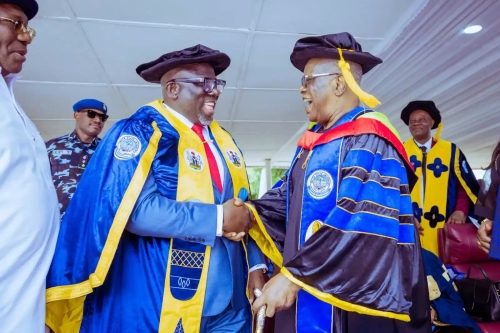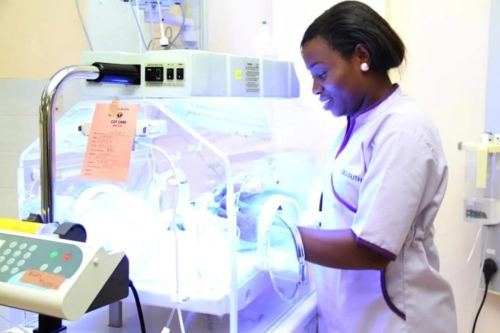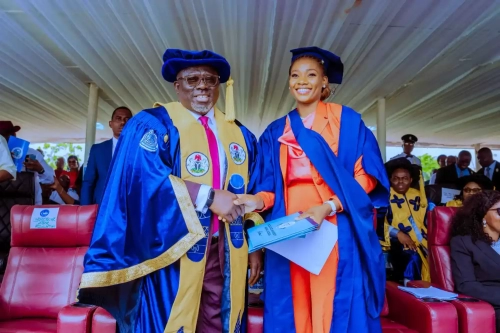About
Delta State University, Abraka (DELSU) was established on April 30, 1992, by the then Executive Governor of Delta State, Olorogun Felix Ibru. The university evolved from a Government Teachers’ Training College during the colonial era, later becoming a College of Education awarding the Nigerian Certificate of Education (N.C.E.) from 1971 to 1985. In 1981, it was affiliated with the University of Benin and offered degree programmes until 1985 when it became the Faculty of Education of the then Bendel State University. Following the creation of Edo and Delta States in August 1991, DELSU was established as an autonomous institution. Currently, DELSU has a student population of about 22,000 and offers a range of programmes from full-time certificate, diploma, and degree programmes to part-time evening and weekend degree programmes .
| Acronym |
DELSU |
| Nickname |
DELSU |
| Motto / Slogan |
Knowledge, Character, and Service |
| Founded |
1992 |
| Departments |
84 |
| Location |
Ethiope East, Delta, Nigeria |
| Address |
P.M.B. 1, Abraka Delta State, Nigeria |
Mission
To promote quality education, character, and cultural transformation, to meet the challenges of our time through exemplary scholarship and professionalism for the purpose of addressing local, national, and international issues in key areas so as to contribute to the improvement of the global community.
Vision
To become a centre of excellence through Teaching, Scholarship, Research, Innovation, Community Service, and Dissemination of knowledge
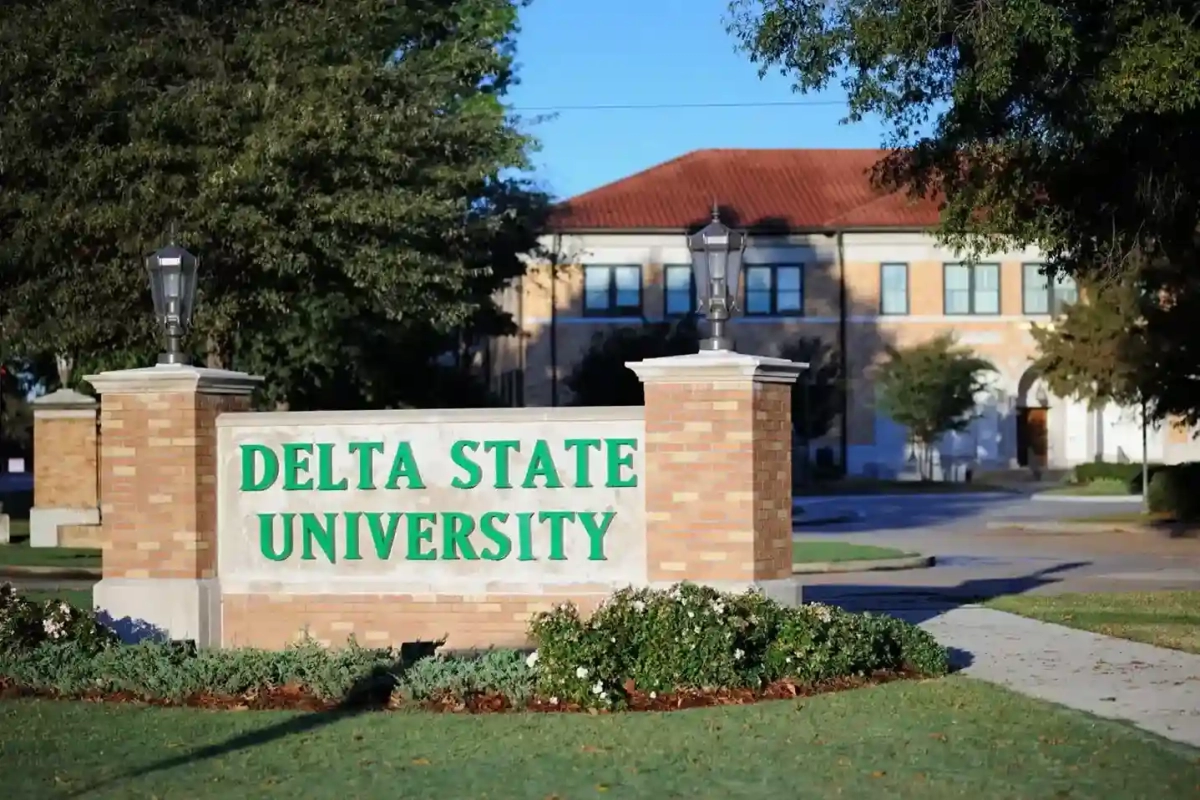
Objectives
To provide quality education, foster research and innovation, and contribute to community development through various academic and professional programmes.
Admission
Admission Rate (50%)
0%
50%
100%
Undergraduate Admission Requirement
For Direct Entry
- Direct Entry candidates must be holders of NCE, OND/HND/First Degree, 'A' Level or their equivalents in relevant disciplines and subjects.
- Candidates must ensure that their qualifying results were uploaded to JAMB.
- Candidates whose 'O' Level results are being awaited are advised to also upload the same to JAMB as soon as the results were released. Candidates that failed to upload their results to JAMB will not be considered for admission.
- Further information can be obtained via [email protected] or WhatsApp message to 08142578507.
Supporting Documents
- WAEC; NECO; NABTEB or GCE Certificate
- UTME Result
- Acceptance Fee receipt
- Completed Application Form
Postgraduate Admission Requirments
General Admission Requirements
- Candidates for postgraduate studies must have a degree or its equivalent from a DELSU Senate-recognized institution. They must have also obtained at least five (5) credit passes, in WASC, NECO, GCE (Ordinary Level), or NABTEB at not more than two (2) sittings.
- Credit Pass is required for O' Level WAEC results in English Language and Mathematics into all programmes except in the Faculties of Arts and Law, where a pass in Mathematics is required. ACE and TC II are not acceptable. (Not equivalent to WASC, NECO, GCE or NABTEB). Please note that there will be no waiver for anybody seeking admission into any of the programmes.
PhD Program
- A candidate applying for Ph.D. in any programme must have obtained at least a weighted average score of 60% overall or a CGPA of 3.50
Master's Program
- Candidates applying for academic Master Degree: (M.Sc., M.Ed., M.A. LL.M. and M.Eng.) must be holders of bachelor's degree in the relevant discipline from the Delta State University, Abraka or any other accredited university with at least "Second Class Honours (Lower Division) degree recognized by Senate.
- Candidates applying for professional Master Degree must be holders of Bachelor's degree in relevant discipline from Delta State University, Abraka or any other accredited university with at least a Second Class Honours (Lower Division) degree recognized by Senate or a Higher National Diploma with Upper Credit from a Senate-recognized polytechnic.
Postgraduate Diploma
- Candidates for Postgraduate Diploma programmes must be holders of a bachelor's degree in the relevant discipline from the Delta State University, Abraka or any other accredited university with at least a "Third Class Honors" degree or a HND (Lower Credit) recognized by Senate.
Supporting Documents
- Transcripts of all previous qualifications obtained.
- WAEC; NECO; NABTEB or GCE Certificate
- NYSC Certificate or Exemption Certificate
- 3-5 pages research proposal indicating area of research interest(for PhD students)
- Completed Application Form
How To Apply For Admission
- Go to https://studentportal.delsu.edu.ng/
- Click on "POST UTME", it displays Purchase Form Page; click on Start Form
- Enter the Jamb Registration and Fill in the required information on the Application form.
- Login to make payment for Post Utme Fee
- Pay your application fee. The application form costs N20,000 (Twenty Thousand Naira) only and payment is made either online or at a physical bank. To pay at the bank, generate pin on the website and pay in any bank displayed on the pin generated.
- After the payment, fill the O'level details, guardian information, upload your passport and submit application
- Click on "Print" to get a copy of the completed Form for future use.
NOTE: Candidates who did not choose Delta State University, Abraka as first choice university but scored the required cut-off mark may also apply on the condition that they visit the JAMB website and change their institution of first choice to Delta State University, Abraka before the close of the Post-UTME application
Admission Contacts
Email: [email protected]
Phone : +234 813-412-3751
Apply For Admission
Vice Chancellor
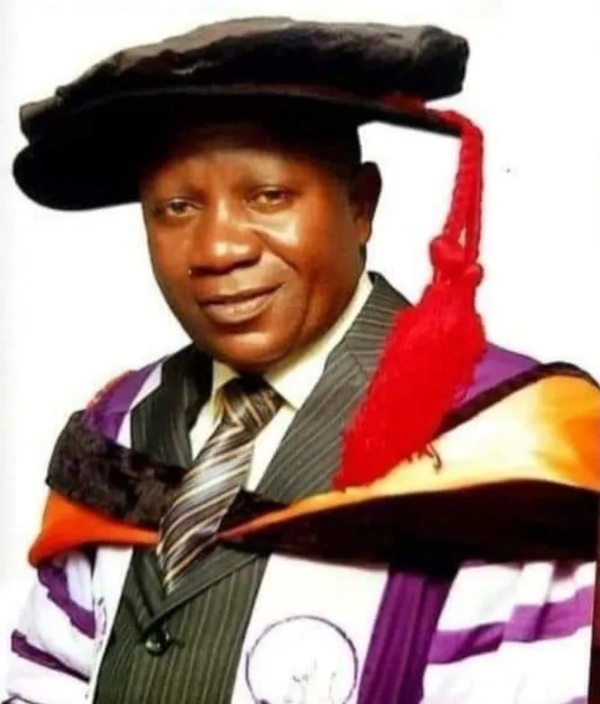
Prof Samuel Ogheneovo Asagba hails from Sapele, Delta State. He is an alumnus of the University of Benin, Nigeria, where he obtained his BSc and PhD degrees in Biochemistry in 1986 and 2001 respectively. He received his MSc degree in the same subject from the University of Lagos, Nigeria, in 1991. He is highly interested in academic research, which informed his decision to pick up an academic posi
... read moretion with Delta State University in 1994 and has risen through the ranks since his engagement. He has been a Professor of Biochemistry since October 2010. As an academic, Prof. Asagba is highly respected for his cutting-edge research in the field of toxicology, particularly his work on the molecular effects of heavy metal toxicity. His focus on cadmium toxicity and its environmental impact has placed him at the forefront of global research in this area. With over 100 published works in prestigious national and international journals, Prof. Asagba has established himself as a leading figure in biochemistry and toxicology, earning the admiration of colleagues both in Nigeria and abroad. Many of the published works of Prof Asagba showed the possible toxic effects of the consumption of the level of cadmium in Warri River and contaminated fish from the river between 1986 and 1991. The findings from Prof Asagba’s research work underscore the need for the study of the toxicological implications of chronic low-level exposure to cadmium in Nigeria in view of the increasing contamination of the soil and water bodies by heavy metals as a result of industrialization. Prof Asagba’s research also covered the alleviating effects of natural products of plants origin such as carrots, garden eggs, oats, Hibiscus sabdarrifa extract (zobo) and honey on cadmium toxicity. The outcomes of these researches showed the protective actions of these natural products to the presence of antioxidants such as anthocyanins and vitamins.
History
The Delta State University, Abraka – popularly known as DELSU, is a State government university which started with the main campus located at Abraka, and a campus at Anwai, Asaba. With the 1995 Amended Edict, we now have a campus at Oleh. The University runs a multi-campus system with three campuses within a distance of about 200 km apart. Currently, with a student population of about 22,000 (in the 2019/2020 session). The University offers a range of programmes from the full-time certificate, diploma and degree programmes to part-time evening and weekend degree programmes. The University offers postgraduate studies up to a doctoral level. A staff/student counselling centre, an e-learning
... read morecentre, student accommodation and sporting facilities amidst others are available support services.
It is one of the State universities overseen and accredited by the National Universities Commission. Delta State University, Abraka has been historically recorded as a Centre of Education. It started as a Government Teachers’ Training College during the colonial era and some years into the post-colonial era. It became a College of Education that awarded Nigerian Certificate of Education (N.C.E.) from 1971-1985. In 1981, it was affiliated to the University of Benin, Benin City and consequently offered degree programmes from 1981 till 1985 when it became the Faculty of Education of the then Bendel State University with its main campus at Ekpoma. The creation of Edo and Delta States in August 1991 and the conversion of the main campus of the then Bendel State University, Ekpoma to become Edo State University in December 1991, necessitated the establishment of an autonomous Delta State University, Abraka on 30th April, 1992 by the then Executive Governor of the State, Olorogun Felix Ibru.

